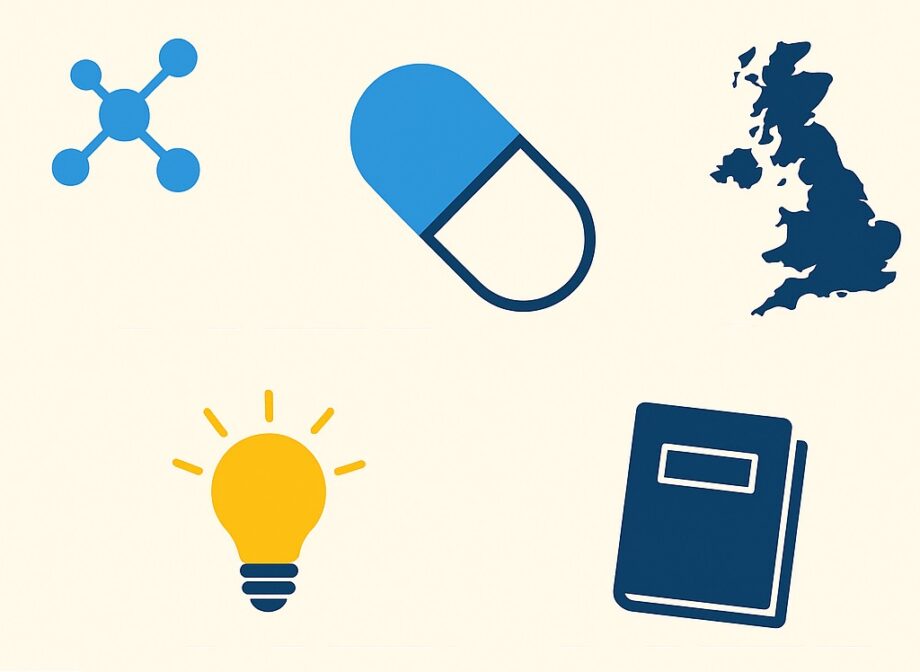The 2011 film Limitless introduced audiences to NZT-48, a fictional “smart drug” that transforms its user into a hyper-intelligent, hyper-productive superhuman, capable of mastering languages in hours, solving complex problems effortlessly, and achieving unparalleled success. This cinematic wonder pill, which supposedly unlocks 100% of the brain’s potential, has captured the imagination of many, particularly in the UK, where students and professionals alike are increasingly drawn to cognitive enhancers. But is NZT-48 real, and how does it compare to the growing trend of nootropics, eugeroics, and stimulants among UK students? Let’s explore the truth behind the hype and the reality of these substances.
What is NZT-48?
NZT-48 is a fictional nootropic from Limitless, portrayed as a nitrogen-based psychotropic that enhances memory, intelligence, and focus to superhuman levels. In the movie, it allows the protagonist, Eddie Morra, to achieve extraordinary feats, like writing a book in days or amassing wealth through stock market mastery. However, it comes with severe side effects, including addiction and dangerous withdrawal symptoms. While NZT-48 doesn’t exist, its allure has fueled interest in real-world cognitive enhancers, with some companies even marketing products under the NZT-48 name, claiming to boost focus and productivity. These real-world versions, however, are far less potent than their fictional counterpart.
The Popularity of Cognitive Enhancers Among UK Students
In the UK, the pressure to excel academically has driven a surge in the use of cognitive-enhancing substances among students, particularly at universities with competitive environments like Oxbridge or Russell Group institutions. A 2023 survey by the National Union of Students (NUS) found that approximately 15% of UK university students have experimented with nootropics or stimulants to improve focus during exams or coursework deadlines. Social media platforms, including posts on X, have amplified this trend, with influencers promoting supplements like caffeine pouches or branded nootropics as study aids. However, these substances vary widely in efficacy, safety, and legality, raising concerns among experts about their long-term effects.
Understanding Nootropics, Eugeroics, and Stimulants
Nootropics
Nootropics, often dubbed “smart drugs,” are substances designed to enhance cognitive functions like memory, focus, and creativity. They range from natural compounds like ginkgo biloba and lion’s mane mushroom to synthetic options like racetams (e.g., piracetam). In the UK, nootropics are popular among students for their purported ability to improve concentration and reduce mental fatigue. For instance, products marketed as NZT-48 by companies like Limitless X contain ingredients such as caffeine, phosphatidylserine, and alpha GPC, which may offer modest benefits like increased alertness. However, clinical studies show that while some nootropics improve specific cognitive functions in deficient populations (e.g., those with ADHD or age-related cognitive decline), their effects on healthy individuals are often minimal or inconsistent. Side effects, though rare, can include headaches, anxiety, or gastrointestinal issues.
Eugeroics
Eugeroics, such as modafinil, are wakefulness-promoting agents primarily prescribed for conditions like narcolepsy or sleep apnea. Unlike traditional stimulants, they target specific brain regions, like the anterior hypothalamus, to enhance alertness without the intense “high” of amphetamines. Modafinil has gained a reputation as the closest real-world equivalent to NZT-48, with some UK students using it off-label to stay awake and focused during all-night study sessions. A 2024 study in Brain Sciences noted modafinil’s ability to improve executive function and reaction time, particularly in sleep-deprived individuals, but its benefits in healthy users are modest and not transformative. Modafinil is a prescription-only drug in the UK, and its off-label use carries risks like insomnia, anxiety, and potential dependency, with limited evidence on long-term safety.
Stimulants
Stimulants like Adderall (amphetamine-based) and Ritalin (methylphenidate) are commonly prescribed for ADHD but are sometimes misused by students seeking enhanced focus. These drugs increase dopamine and norepinephrine levels, boosting alertness and concentration. In the UK, their use without a prescription is illegal, yet anecdotal reports on platforms like Reddit suggest a small but growing black-market use among students, particularly during exam periods. While effective for some, stimulants can cause side effects like jitteriness, increased heart rate, and, in rare cases, severe psychiatric issues. Unlike the fictional NZT-48, they don’t grant superhuman intelligence and can impair creativity by narrowing focus, as noted in a 2014 BBC article.
The Reality vs. the Myth
The NZT-48 depicted in Limitless is pure fiction, rooted in the debunked myth that humans use only 10% of their brains. Real-world nootropics, eugeroics, and stimulants offer incremental cognitive benefits at best, far from the miraculous transformation promised by the movie. A 2025 review by Psyberguide tested a commercial NZT-48 product and found it provided only mild stimulation, akin to a cup of coffee, due to under-dosed ingredients like caffeine and guarana. Experts like Dr. Guillaume Fond from Aix-Marseille University emphasize that no drug currently matches the cinematic hype, and lifestyle factors—proper sleep, nutrition, and exercise—remain the most effective ways to boost cognitive performance.
Risks and Ethical Concerns
The pursuit of cognitive enhancement isn’t without risks. Commercial NZT-48 products often lack transparent dosing information, raising concerns about safety and efficacy. Counterfeit versions sold online may contain unlisted or unsafe ingredients. Prescription drugs like modafinil and Adderall, when misused, carry legal and health risks, including potential for abuse, though modafinil’s abuse potential is lower than traditional stimulants. Ethically, the use of these substances raises questions about fairness in academic settings, where enhanced performance could create uneven advantages. The NUS has called for universities to educate students about these risks, noting that reliance on such substances may mask underlying issues like stress or poor study habits.
Conclusion
The dream of a real NZT-48 remains just that—a dream. While nootropics, eugeroics, and stimulants are gaining traction among UK students, their effects are modest compared to the fictional pill’s promises. Students seeking a competitive edge should approach these substances with caution, prioritizing evidence-based lifestyle improvements over unproven or risky shortcuts. The “Limitless” fantasy may inspire, but the reality of cognitive enhancement is far more grounded, with no magic pill in sight.


